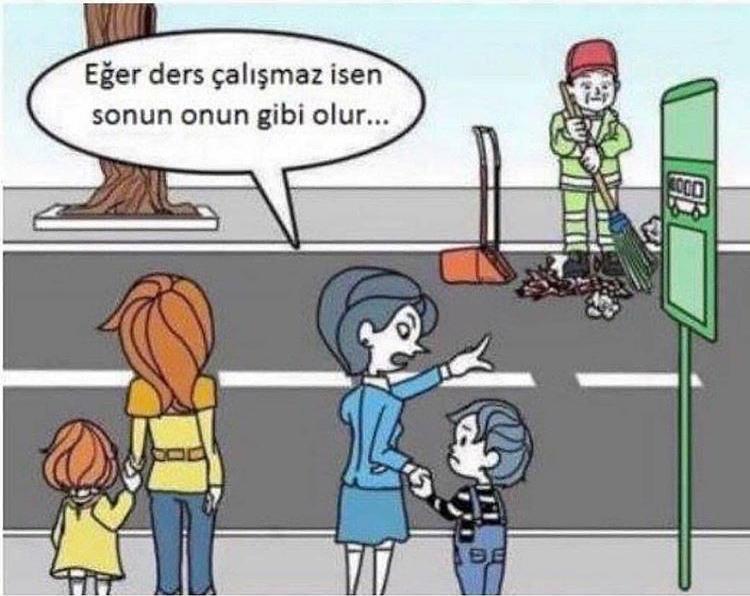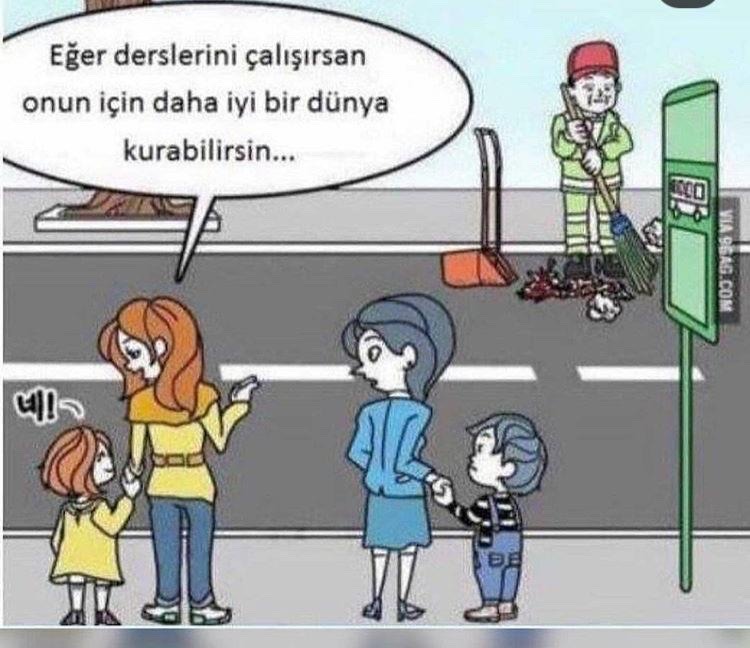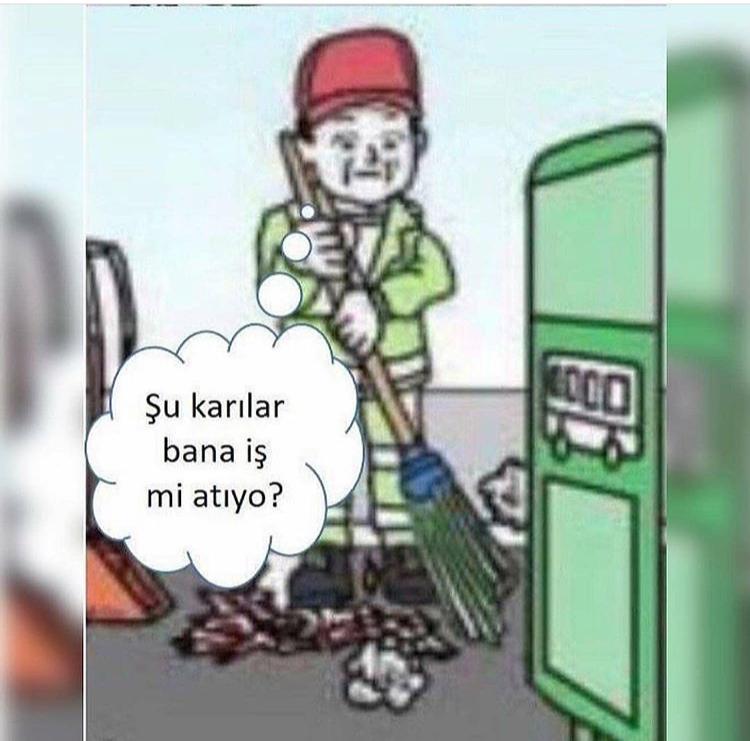Eğer ders çalışmaz isen sonun onun gibi olur… ABE 3000 Eğer derslerini çalışırsan onun için daha iyi bir dünya kurabilirsin… น||จ DE 3000 VIA 9GAG.COM Şu karılar bana iş mi atıyo? COCO
Kaynak
The image is a cartoon. It shows a woman and a young child, both with orange-blonde hair, standing near a street. A man in a cleaning uniform is sweeping up litter. A speech bubble above the figures says, "Eğer ders çalışmaz isen, sonun onun gibi olur..." The joke, in Turkish, is a common proverb/saying with a visual punchline. It translates to: **"If you don't study, your end will be like his."** The humor comes from the visual comparison. The man sweeping up the litter represents the unfortunate result of not studying/applying oneself. The image is a warning about the consequences of not getting an education. The cartoon implies that not studying will lead to a life of cleaning up others' messes (metaphorically speaking).
The image is a cartoon. It shows a woman, a little girl, and a little boy on a city street. A street cleaner is busy cleaning up litter near a bus stop. A speech bubble above the characters says: "If you study your lessons, you can create a better world for yourself." The joke, in Turkish, plays on the contrast between the academic message and the reality of the street scene. The street cleaner's job, and the litter scattered around, represent the consequences of a lack of effort or concern for the environment. The cartoon is implying that studying is important for personal and societal betterment; not just for individual success. It highlights the importance of contributing to a clean and functional society. The phrase "Eğer derslerini çalışırsan onun için daha iyi bir dünya kurabilirsin..." (If you study your lessons, you can create a better world for yourself...) is a common and somewhat inspirational statement, but the comic uses it humorously in a context that juxtaposes it with the mess and lack of cleanliness. It implicitly suggests that working hard, in academics, or in life, creates a positive impact on the world.
The image shows a cartoon depiction of a street cleaner. He's wearing a light green uniform and a red cap. He's holding a broom and appears to be sweeping up litter on the ground. A thought bubble above him says, "Şu kırılar bana iş mi atıyor?" The joke is a play on words using the Turkish phrase "Şu kırılar bana iş mi atıyor?". Let's break it down: * **Şu kırılar:** This refers to the pieces of broken trash/litter. * **bana:** Means "to me" or "for me". * **iş:** Means "work" or "job". * **mi atıyor?:** Means "is it throwing/giving me?". The implied meaning is: "Are these pieces of trash/litter assigning me a task?". It's a sarcastic question about the amount of rubbish and whether it's meant for this worker to clean up. The joke is that the trash is piled up, seemingly as if to purposefully make a lot of work for the cleaner. In essence, the cartoon humorously implies that there's too much trash, making the job significantly harder for the street cleaner.



Henüz bişi yazılmamış